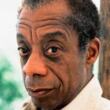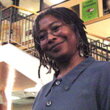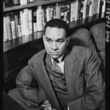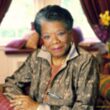NoveList provides detailed suggestions for other authors you might want to read if you enjoyed this book. Suggestions are based on recommendations from librarians and other contributors.
Contemporaries and friends, both write of indomitable, vibrant Black women facing intolerable circumstances and, while not always prevailing in the end, preserving their strong senses of self. -- Tara Bannon Williamson
Readers especially attracted to the mythic and feminist aspects of Isabel Allende may find much to appreciate in Toni Morrison, whose stories explore many of the same social issues from a Black viewpoint. Allende's writing style is more conventional, but both authors have strong powers of description and an ability to immerse readers in the story's atmosphere. -- Katherine Johnson
Ishmael Reed and Toni Morrison are considered among the 20th century's most prominent literary voices. Their fiction examines similarly disturbing, poignant, and powerful aspects of the Black experience. While Morrison's style is generally considered more subtle, both write with engaging lyrical complexity. -- Kim Burton
Lyrical, stylistically complex prose flows from both authors. Their character-driven novels explore issues of gender and family relations, social justice, and coming of age. Haunting, even disturbing, truths are revealed in atmospheric Caribbean and North American settings. Though sometimes bleak, wit and hope are also expressed in their rich works. -- Matthew Ransom
Toni Morrison and Brazilian Jorge Amado write literary novels infused with magical realism, using rich and inventive prose that portrays the lives of non-conformist individuals across social lines. Absorbing the dialect and cultures of those they write about, these authors successfully mix politics, religion, and fantasy. -- Krista Biggs
In their jobs as influential editors, both women served as mentors to a generation of African American writers. Jessie Redmon Fauset was literary editor for The Crisis during the Harlem Renaissance; Toni Morrison edited at Random House in the 1970s and 80s. -- Autumn Winters
Robert Jones Jr. has cited Toni Morrison as one of his inspirations. Both authors explore where and how Blackness resides in the American psyche. Along with musical prose, both novelists conjure protagonists who possess an undeniable complexity, making it difficult to peg a character as simply villainous or wholly heroic. -- Basia Wilson
Often mentioned in the same breath as Toni Morrison is Alice Walker. The twin themes of racism and sexism underpin all of Walker's writing, and her colorful descriptions will likely resonate with readers who enjoy Morrison's sumptuous style. -- Katherine Johnson
The nonfiction of James Baldwin and both authors' character-driven novels share a compelling style that absorbs the reader in themes of personal perspective and social justice, especially on African American issues. Their haunting messages are conveyed by often lyrical, sometimes gritty, passages woven into stylistically complex stories. -- Matthew Ransom
Gloria Naylor and Toni Morrison draw on a variety of traditions in their strong, resonant novels about the struggle of black men and women in search of identity and community. Blending harsh realism and mysticism, they write haunting stories that give eloquent voice to the silenced in intriguing, nonlinear ways. -- Krista Biggs
Like Toni Morrison, John Edgar Wideman brings a breathtaking lyrical virtuosity and scathing honesty to his novels. His treatment of the Black urban experience and his wide-ranging exploration of race and life across centuries and continents, writing challenging, psychologically dense prose that resembles Morrison's multi-layered narrations. -- Katherine Johnson
The stylistically complex novels of these authors provide deep insights into Black perspectives and experiences. Ranging from amusing to bleak, they incite a full range of emotions in the reader. Characters' hearts, minds, and actions are described in often lyrical language. -- Matthew Ransom





































